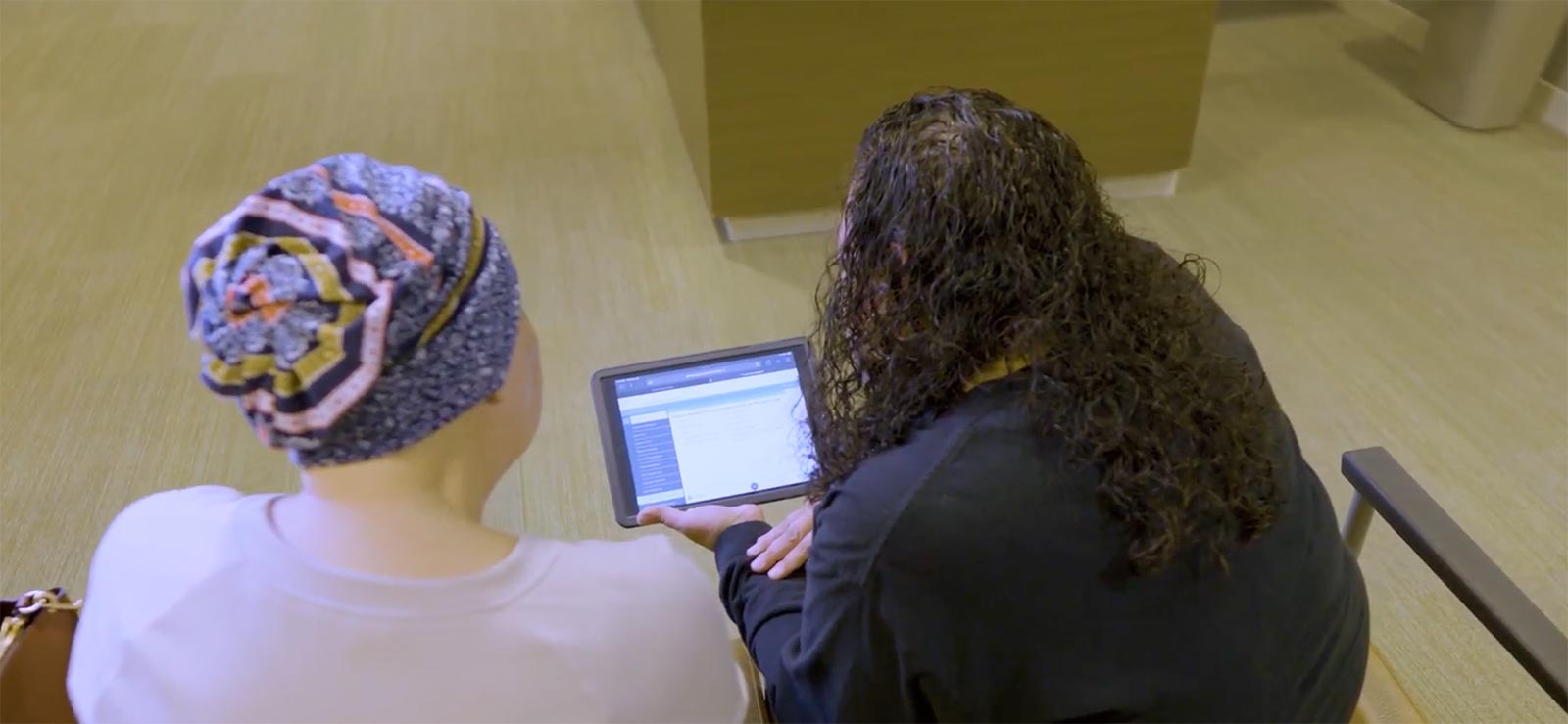
This article from ONS highlights growing opportunities for technology to support front-line care and adherence research in oral chemotherapies.
While it’s true that no standardized tool currently exists for oral chemotherapy adherence and self-management, Carevive’s development of a question set based on information from the PROMIS PMAS, and guidance from clinical oncology pharmacists and nurses, is a step in the right direction.
Our standard ePRO+ health measures engage the patient or their surrogates through the app or web interface of their preference to allow oral adherence and toxicity information to be proactively collected and then displayed to care team members for clinical decisions.
With report features in the platform that can filter information down to those who have not reported (or to critical symptoms or adherence concerns for those who have), prioritization and documentation are immediately more efficient and automated.

Oral Adherence Care Team View
Jennifer L. Zadlo, Pharm. D. BCOP, Clinical Pharmacy Specialist and consultant for the development of our oral adherence question set says “Evolving technology is a necessity in healthcare, especially with this explosion of oral oncolytic therapies. The adherence tool is multipurpose: a reminder for patients to take their medications, provide objective details to the clinic team regarding start of therapy, how patient is taking, and barriers to compliance. The reality of the healthcare system is that we’re dealing with limited people resources, but with the help of technology, we can automate some processes and allocate our staff for those tasks that require a human touch.”
When patients feel comfortable reporting health information, they will usually share it and feel more connected because of it. Inviting their answers through intuitive and engaging hubs or portals, such as Carevive PROmpt® supports their relationship with the team and allows the team more and earlier information for intervention decisions (in alignment with ePRO and eHealth tools research).
“Carevive’s patient education is truly unique,” says Sharon Cavone, RN, BSN, OCN, certified Nurse Navigator. “Knowing that a patient receives a real-time response with personalized education on their health and symptoms before I can even get back to them on the phone or send a message, gives me some peace of mind. The patient can use the information to improve at home symptom management or to know to escalate reporting a significant symptom.”

